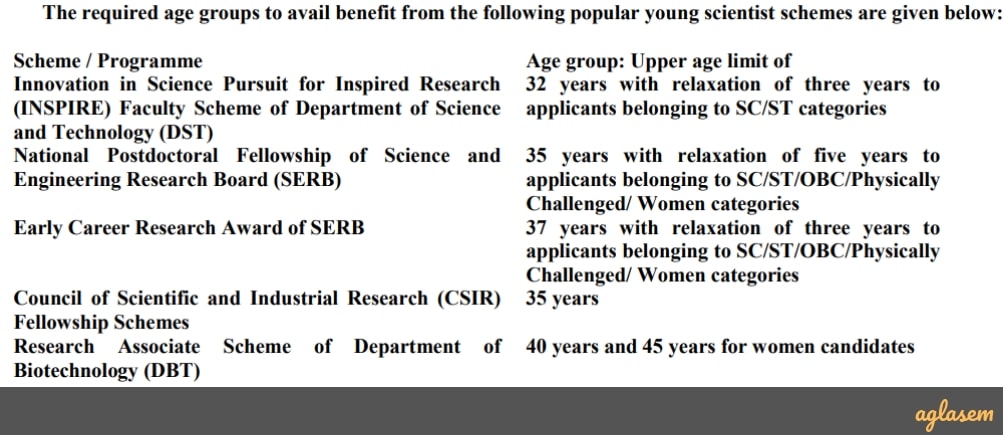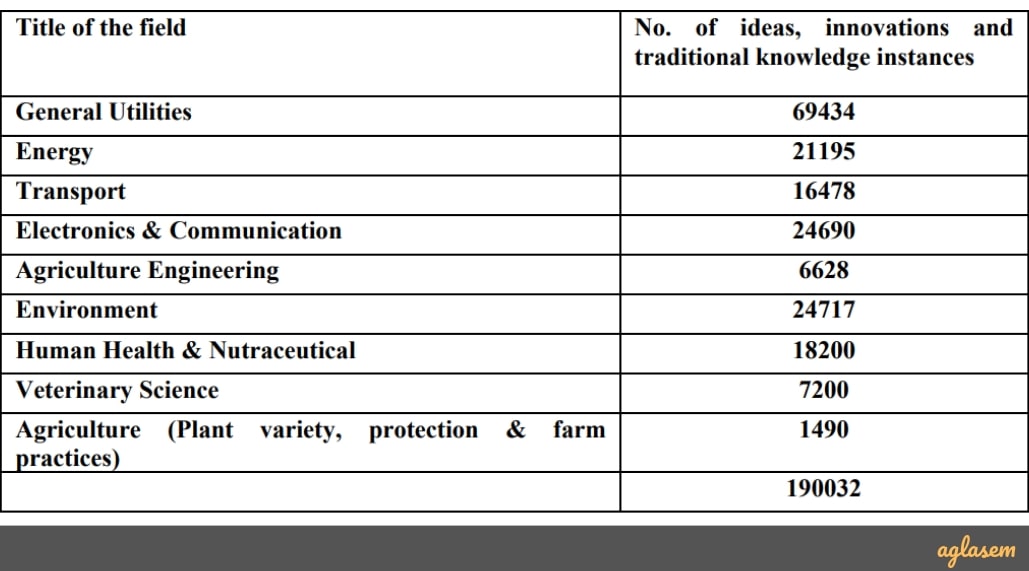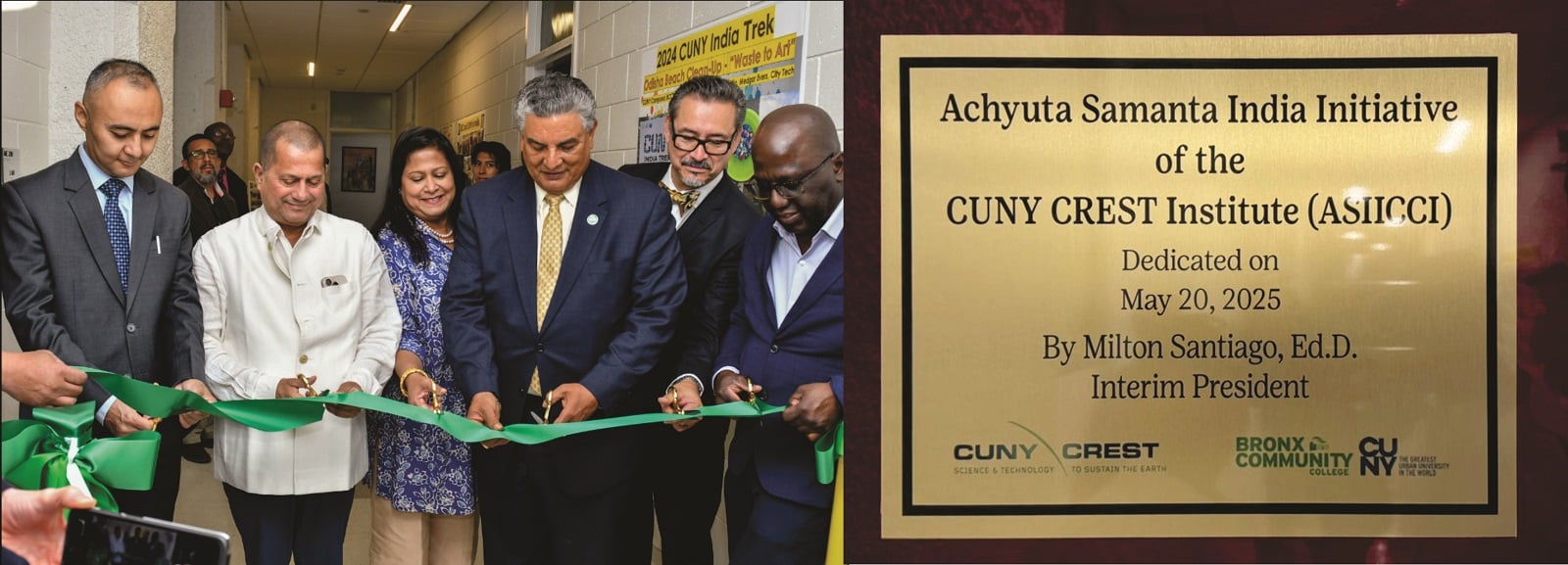Ministry of Science and Technology, Department of Science and Technology has taken several steps to promote science education and research in India.
Funds allocated for young scientist research programmes in 2015-16, 2016-17, 2017-18, 2018-19 are respectively 1039.6 cr, 1136.9 cr, 1122.6 cr, and 1180 cr.
To promote young scientists in India, the Government has implemented various measures over the years. Some ways in which young scientists are encouraged to pursue research are via early career grants, core research grants, doctoral fellowships, post doctoral fellowships.
Programs aimed towards the same objective are: INSPIRE, NPDF, ECRA, CSIR.
Upper age limit for INSPIRE scheme is 32 years. It is 35 years for NPDF, and 37 years for Early Career Research Award of SERB. CSIR Fellowship upper age limit is 35 years and that for Research Associate Scheme of DBT is 40 years for males and 45 years for females.

Then there are Start-up Research Grant Schemes wherein young researchers with innovative ideas are identified and provided with training, research opportunities. Such scientists are encouraged to take up challenging researches for the country and also to grow as independent researchers.
In response to questions asked in the Lok Sabha, the Minister of Science and Technology listed the various positive results of the initiatives. To start with, a number or high impact journals have carried quality publications of Young Scientists’ projects. Then many young researchers have made a place for themselves in S&T. Many have got appointments in academic, research institutions, received awards and recognitions.
Special schemes and scholarships under these programs are also in place. This includes the Shyama Prasad Mukherjee Fellowship for top ranking JRF – National Eligibility Test (NET) qualified candidates. DST has also initiated a thematic fellowship programmes in solar energy, building energy efficiency higher & advanced network and water research.
The Department of Science and Technology (DST) had founded National Innovation Foundation (NIF) in the year 2000. In the last five years it has recorded over 1,90,000 unique ideas, innovations, instances of traditional knowledge from across the country.

The NIF has recorded numerous innovations that have a direct impact on grassroot level, helping the poor people in the country. Its database has 3.1 lakh technological instances from 608 districts of the country. These ideas have been validated with the help of RnD academic institutions, agricultural and veterinary universities.
1040 patents have been filed, in which 215 were agriculture related, from the instances recorded by NIF.
A number of schemes under Ministry of Science and Technology have been launched by the Government.
NM-ICPS that is National Mission on Interdisciplinary Cyber-Physical Systems was approved in 2018 for 3660 crores.
Three major schemes were launched in 2017-18 under Department of Biotechnology: Biotechnology Innovation Fund – AcE Fund of 150 crores, Industry-Academia Collaborative Mission for Accelerating Discovery Research to Early Development for Biopharmaceuticals – Innovate in India (I3) for 1500 crores, Biotech-KISAN scheme.
Government had approved National Supercomputing Mission (NSM) in 2015 for 4500 crores.
In 2014-15, five Technology Research Centres (TRCs) were opened in SCTIMST Trivandrum, ARCI Hyderabad, JNCASR Bengaluru, IACS Kolkata, SN Bose National Centre for Basic Sciences Kolkata.






